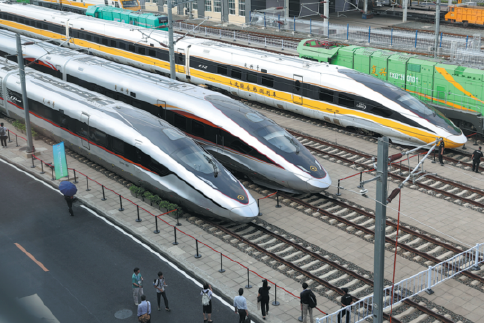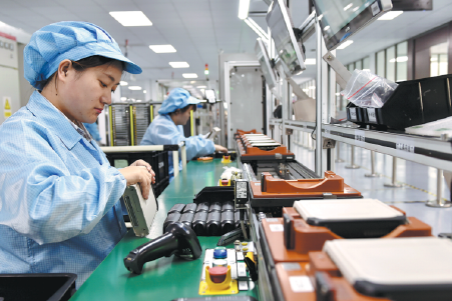Protecting Chinese inventions with smart patent moves


I started reporting on the tech industry in 2015 and since then I've noticed that patents have always been a key topic of interest for my interviewees, readers and myself.
After all, patents speak volumes about a country's or a company's technological strength or weakness. Over the past decade, I've witnessed how patents shifted from being the biggest obstacle for Chinese companies seeking to go global to being the biggest source of confidence for them as they navigate the international waters amid challenges.
Nothing proves this point better than the recent case of Oppo inking a global patent cross-license agreement with Nokia, ending a years-long legal battle over cellular patent rates that spanned continents.
The two companies had been engaged in multiple patent lawsuits across 12 countries since 2021, as they failed to agree on the price for Oppo to use Nokia's 5G patent portfolios on the Chinese firm's smartphones. In some markets, court rulings in favor of Nokia led to bans on Oppo from selling to local consumers.
But the two companies finally ended their legal battles in January, with a global patent cross-license agreement covering standard-essential patents in 5G and other cellular technologies. SEPs are essential for products to comply with global industry standards.
The agreement came after a December ruling from the Chongqing First Intermediate People's Court. The court decided that the fair licensing fees should be $1.151 per 5G handset in developed markets, including Europe, and $0.707 per device in other countries, including China. It means that the Chinese court supported Oppo's petition to set lower royalty rates for Nokia's SEPs for 2G to 5G technologies.
Such progress came after Oppo had invested big resources to build up its own patent portfolios. As of Dec 31, 2023, Oppo had deployed 5G communication standard patents in over 40 countries and regions, with more than 5,900 patent families globally, and more than 11,000 standard documents submitted to 3GPP, an international telecom standardization body.
According to a report from German patent analytics company IPlytics in October, Oppo ranks among the top eight companies globally in terms of 5G standard-essential patent strength.
This is not an easy outcome for Chinese companies that, for years, have lost their legal battles against foreign companies.
Jenni Lukander, president of Nokia Technologies, said in a statement:"We are delighted to have reached a cross-license agreement with Oppo that reflects the mutual respect for each other's intellectual property …Oppo is one of the leading companies in the global smartphone market and we look forward to working together to bring further innovation to their users around the world."
Oppo's progress is similar to that of a group of Chinese companies that traditionally didn't boast much tech prowess but have worked hard to beef up their tech muscle.
Chinese big names such as Huawei have been known for heavy R&D for decades, which have helped them to evolve into tech giants.
Over the past decade, Huawei's cumulative investment in R&D surpassed 1.11 trillion yuan ($153.3 billion). Even as the US government's restrictions crimped Huawei's revenue over the past three years, the Chinese company had not reduced but increased its R&D budget.
Huawei has been the top applicant at the European Patent Office in five of the past seven years, and there are seven Chinese companies among the Top 50 applicants at the EPO, including Huawei, ZTE, Contemporary Amperex, Oppo Mobile, Vivo Mobile, Xiaomi and Honor Device, data from the EPO showed.
In interviews over the last two years, Aidan Kendrick, chief business analyst at the EPO, told me he was quite impressed by the strides Chinese companies have made in patents as they aim for a bigger European presence.
Chinese patent applications at the EPO grew by 8.8 percent year-on-year in 2023. That came as part of a broad trend of patent filings from China at the EPO more than doubling over the past five years, Kendrick said.
"The country's remarkable growth in terms of patent applications shows that Chinese companies are increasingly protecting their inventions," Kendrick said.
"It's always difficult to make forecasts, but if one were to extrapolate the trends of patent applications from China and the next higher-ranked countries, China could move up a spot to overtake Japan and become the third-largest patents filer at the EPO in 2024."





































